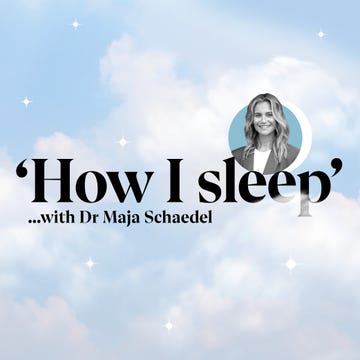You may feel fit and well – youthful, even… but could your heart be letting you down? Research by US scientists has revealed that many adults’ hearts are up to a decade older than their chronological age… leaving them at greater risk of a stroke or heart attack.
‘Some people have hearts that are biologically older than their actual age because of years of exposure to harmful factors like smoking, poor diet, high blood pressure or lack of physical activity,’ says Dr Gosia Wamil, consultant cardiologist at Mayo Clinic Healthcare in London. ‘Over time, these stressors can cause stiffening of the arteries, thickening of the heart muscle and loss of elasticity – changes that reflect premature ageing.’
There are some factors you can’t control that contribute to an ageing heart – simply getting older, or having a family history of cardiovascular disease, for example. Being a woman also puts you at greater risk. ‘Cardiovascular disease remains the leading cause of death in women, and it’s often underdiagnosed or diagnosed later than in men,’ says Dr Wamil. ‘Women are also more likely to develop certain types of heart failure and often have atypical symptoms. Hormonal changes after menopause, combined with lifestyle and metabolic risk factors, may accelerate heart ageing in women.’
But there are many things we can do to slow down the rate our hearts are ageing, and top of the list is changing harmful lifestyle factors. ‘The biggest culprits are smoking, high cholesterol, high blood pressure, sedentary lifestyle, poor diet (especially a diet high in salt, sugar and processed fats) and obesity.’
‘Each of these factors can damage the inner lining of blood vessels, promote inflammation and lead to the buildup of plaque in arteries. Over time, they reduce the heart’s efficiency and resilience. For example, obesity not only increases strain on the heart but also promotes metabolic dysfunction, which accelerates the ageing process.’
US scientists have now developed a free online tool to help uncover your heart age – find it here; and as the early signs of accelerated ageing are often silent, it pays to keep an eye on your health numbers. Conditions like raised blood pressure and high cholesterol and blood sugar levels are ‘major red flags’, and Dr Wamil recommends regularly monitoring blood pressure, cholesterol levels, HbA1c or fasting glucose (to screen for diabetes or prediabetes), BMI and your resting heart rate. ‘People may notice subtle symptoms, such as reduced exercise tolerance, palpitations or fatigue – especially during exertion,’ she adds. ‘Unfortunately, these symptoms often appear later in the process, which is why routine screening is so important.’
But there is good news: heart ageing is not irreversible. ‘Preventive strategies can make a powerful difference, even later in life,’ says Dr Wamil.
‘Small changes in your daily habits can have a profound impact on your heart’s age and your overall health span. Even modest improvements in exercise and diet can begin to slow – and in some cases reverse – premature cardiac ageing. Our heart is incredibly responsive to positive changes; the sooner we act, the more years of healthy life we can gain.’
The steps to take – Dr Wamil advises:
- Regular aerobic exercise (even brisk walking for 30 minutes daily can have major benefits);
- A Mediterranean-style diet rich in fruits, vegetables, wholegrains, fish and healthy fats;
- Maintaining healthy cholesterol and blood pressure;
- Avoiding smoking and limiting alcohol intake;
- Staying socially and mentally active.













